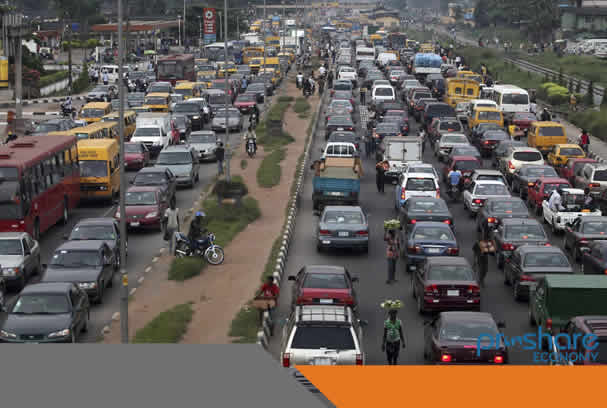Saturday, October 13, 2018 /08:59PM / FDC
Rising crude oil prices are set to send Nigeria’s billfor fuel subsidies rocketing, threatening to exacerbate the already precariouseconomic situation of Africa’s largest oil producer as it heads into electionseason. Although Nigeria produces 1.7m barrels of crude per day, it has verylittle refining capacity and imports roughly 90 per cent of its fuel, negatingmuch of the benefits oil-producing nations accrue from high crude prices.
When crude prices plunged to about $30 a barrel in2016, it sent Nigeria’s oil-dependent economy reeling into a recession fromwhich it has barely recovered. While a rally has since pushed the oil pricepast $85, Africa’s most populous country is not set to reap the benefits. Thisis because its subsidy bill is likely to surge beyond the $3.85bn annual tallythe oil minister estimated earlier this year when prices were 20 per centlower, said Tunde Ajileye, a partner at SBM Intel, a political and economicrisk consultancy.
“We sit on a double-edged sword: when oil prices godown, government revenues go down and it becomes difficult to get foreignexchange,” he said. “When oil prices go up, while there is usually an increasein government revenues . . . the big issue is thatfor refined products like fuel and diesel, the prices go up and [then] . . . the subsidy bill goesup.”
In April, when crude averaged about $70 a barrel,Emmanuel Kachikwu, the oil minister, reportedly said the annual fuel subsidybill had risen to 1.4tn naira ($3.85bn) — that is roughly half the N2.67tn thegovernment collected in net oil revenues in 2017 or a quarter of total netgovernment revenues that year. That month, the Nigerian National PetroleumCorporation paid roughly $215m in what it calls “under-recovery” costs: thedifference between what it paid to import fuel and how much it sells the fuelfor. In May, when Brent crude prices averaged about $77, NNPC paid $245m tofill the gap.
With oil prices now 10 per cent higher and climbing,that bill is set to soar, creating a predicament for the government ahead ofFebruary’s elections, said Mr Ajileye. The outlay is unsustainable, he said.“The government has to make a decision of whether to increase fuel pricesdomestically,” he said. “That’s a very politically charged issue.” The lasttime a government in Nigeria tried to scrap the subsidy altogether, in 2013, itprompted widespread protests. Nigeria has the potential to produce more than2.5m barrels a day. But it rarely reaches that level because of poorinfrastructure, theft and pipeline sabotage driven by unrest in the oil-richNiger Delta region. State-run refineries operate at less than 10 per cent oftheir 445,000 barrel-a-day capacity.
The government then sells the fuel to retailers, whichsell on to the public at the subsidised rate of N145 a litre. Crude accountsfor 56 per cent of government revenues, while the country’s annual fuel importbill tops $7bn. As part of a reform the government said was aimed at cleaningup the corruption-addled subsidy regime, President Muhammadu Buhari, in effect,turned state-run NNPC into the country’s sole fuel importer, cutting outprivate sector middlemen marketers.
That has increased the potential for graft withinthe NNPC, a longstanding cash cow for the government, particularly in therun-up to elections, said Jubril Kareem, an energy analyst at Ecobank.
“NNPC is just too big a company, and theopaqueness of the operations is actually aided by its own structure: itproduces crude, buys crude, sells fuel, it regulates itself,” he said. “Atleast before, we knew what NNPC was paying in subsidy [because of monthlyreports that the NNPC no longer regularly issues]. Now you don’t know that . . . You would understand why a government would want to keep it that way.”
Fuel subsidies have long been the subject of abuseand corruption. They also encourage smuggling into neighbouring Cameroon andBenin, where fuel can be sold for twice the price, and even more asinternational oil prices rise. A former central bank governor has estimatedthat more than $1bn went missing every month from oil sales and fuel subsidyscams during a single 19-month period between January 2012 and July 2013 thathe examined. He was subsequently sacked.
Related News
1. IEA: ExpensiveEnergy Is Threatening Economic Growth
2. Move AsideLithium – Vanadium Is The New Super-Metal
3. Oil Prices RiseOn Iran, Hurricane Outages – OIR 091018
4. Oil Price RallyBoosts Electric Car Sales
5. The Oil PriceRally Is Under Threat – OIR 051018
7. The $100 OilDebate – OIR 280918
8. $100 Oil Is ADistinct Possibility
9. Brent Oil HitsIts Highest Level Since 2014 – OIR 250918
10. Is Oil On ItsWay To $80? – OIR 210918
11. Oil Prices SlipAfter Trump Slams OPEC On Twitter
12. Join The 2018Oil Price Prediction Challenge
13. Oil MarketsUnfazed By $200 Billion Trade War Escalation – OIR 190918
14. ICE Begins WestAfrican Crude Oil Swaps
15. A Crucial PeriodFor Oil Markets– OIR 150918
16. Average Pricesof PMS, AGO, HHK and Cooking Gas – August 2018
17. Why Oil PricesAre Heading Higher – OIR 120918
18. The Downside ForOil Is Limited
19. The End Of TheOil Price Rally – OIR 080918
 Lagos, NG • GMT +1
Lagos, NG • GMT +1











 4771 views
4771 views






 Sponsored Ad
Sponsored Ad
 Advertise with Us
Advertise with Us









